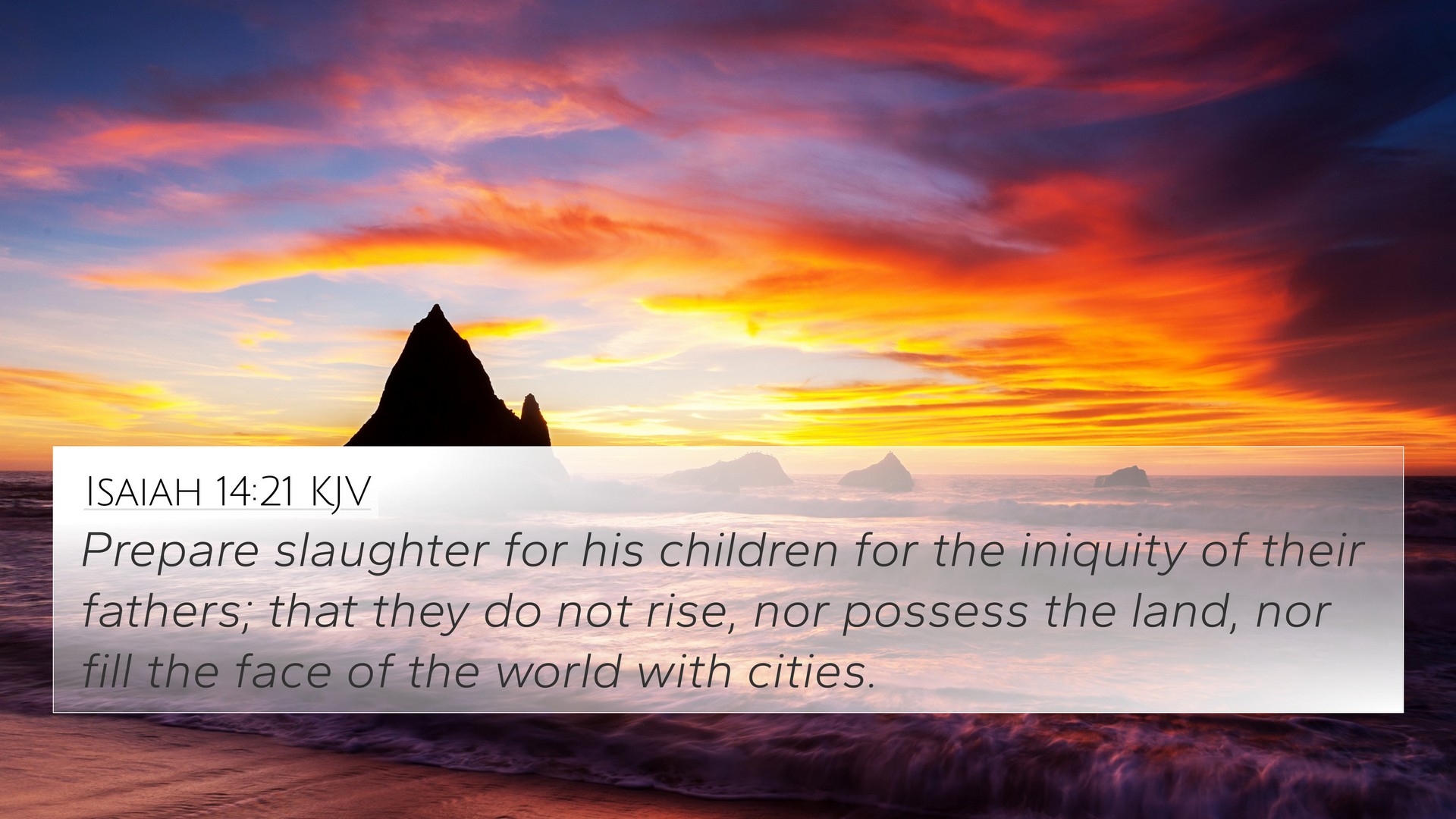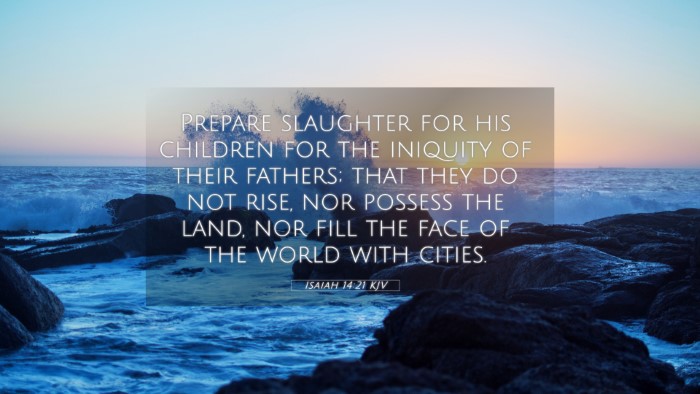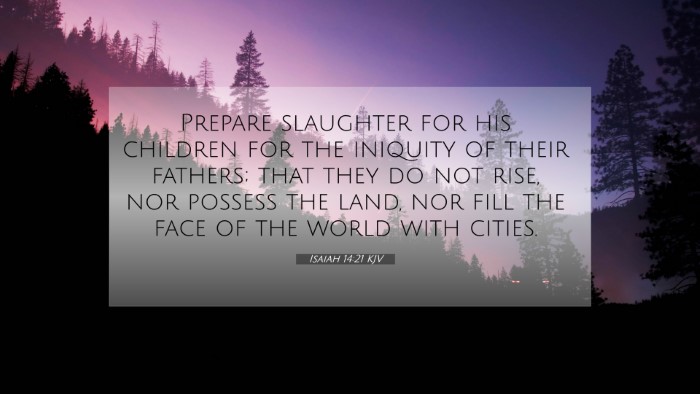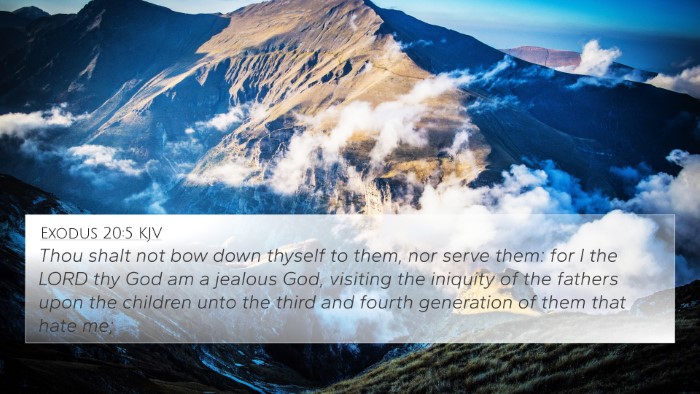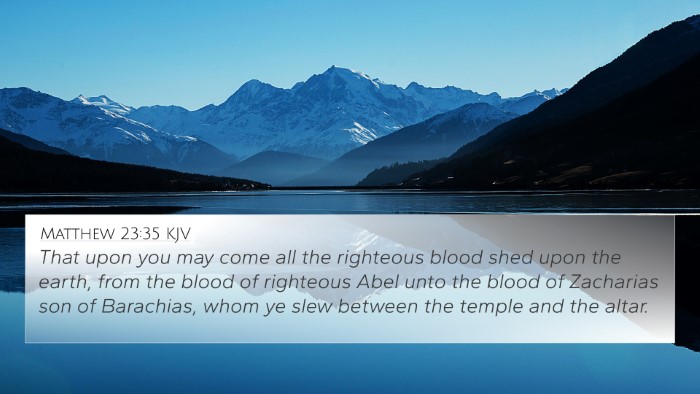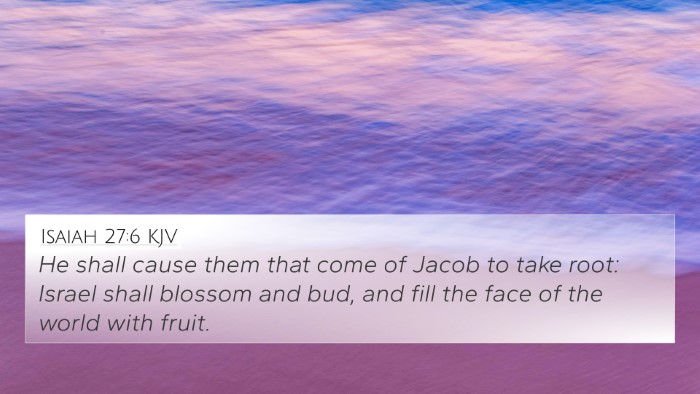Understanding Isaiah 14:21
Verse Reference: Isaiah 14:21 states, “Prepare slaughter for his children for the iniquity of their fathers; that they do not rise, nor possess the land, nor fill the face of the world with cities.” This verse is a part of a prophecy concerning the downfall of Babylon, symbolizing divine judgment and the consequences of sin.
Summary of Insights:
This verse presents a striking illustration of God’s judgment against nations and their leaders, particularly referencing Babylon. The sentiment expressed here calls for a definitive action against those who perpetuate the sins of their forefathers. Below are some detailed insights based on public domain commentaries:
Commentary Insights
-
Matthew Henry:
Henry emphasizes the principle of justice that is inextricably linked to God's nature. He notes that the children of those who committed iniquity are often judged along with their parents as a demonstration of the continuing effects of sin and rebellion against God. This serves as a warning that unrepentant sin can affect future generations.
-
Albert Barnes:
Barnes reflects on the metaphorical use of 'slaughter' which illustrates complete destruction. He identifies this verse as a proclamation of God's intent to eradicate the legacy of sin established by Babylon. It's an ominous reminder that nations that turn away from God are subject to His judgment.
-
Adam Clarke:
Clarke points out that this verse can be interpreted as a prophetic declaration meant to reassure the faithful in Israel. The ultimate demise of Babylon's children symbolizes the end of a corrupt lineage and exemplifies God's sovereignty over nations. Clarke alerts readers to the historical context and the impending judgment pronounced upon Babylon, reflecting God's justice.
Related Bible Cross-References
The connections between this verse and other scriptures deepen our understanding of its meanings. Below are some critical cross-references that relate to Isaiah 14:21:
- Exodus 20:5: Discusses the consequences of sin affecting future generations.
- Jeremiah 51:47: A prophetic warning about the downfall of Babylon.
- Ezekiel 18:30-32: Teaches about individual responsibility and the call for repentance.
- Revelation 18:2: The fall of Babylon is prophesied again in the context of the end times.
- Proverbs 13:22: The idea that a good person leaves an inheritance for their children, contrasting with the fate of the wicked.
- Deuteronomy 24:16: Highlights that children should not be punished for the sins of their fathers.
- Psalm 37:28: Affirms that the Lord loves justice and will not forsake His saints; they are preserved forever.
- 2 Corinthians 5:10: Explains that we must all appear before the judgment seat of Christ, indicating individual accountability.
- Isaiah 13:19: Another prophecy concerning Babylon's volatile fate that reminds the reader of God's sovereignty.
- Micah 3:12: Speaks of the consequences of sin in reference to the land of Jerusalem.
Thematic Connections
The passage of Isaiah 14:21 connects thematically to various biblical contexts, focusing on judgment, repentance, and the sovereignty of God over nations. These connections and cross-references can serve as tools for deeper Bible study. Here are methods and resources that can assist:
- Bible Concordance: Use a concordance to trace keywords and themes across different books.
- Bible Cross-Reference Guide: Employ organized guides that link scripture with related themes.
- Cross-Reference Bible Study: Engage with different passages that relate and discuss their implications.
- Identifying Connections Between Old and New Testament: Explore how prophetic themes flow through scripture.
- Interpreting Biblical Themes Through Cross-References: Analyze the implications of justice across biblical narratives.
Conclusion
The prophetic warning in Isaiah 14:21 serves as a severe reminder of God's judgment against sin and the consequences that echo through generations. Cross-referencing with other biblical texts allows for a comprehensive understanding of the themes of divine justice, accountability, and the nature of sin, which are vital for personal reflection and collective worship.
